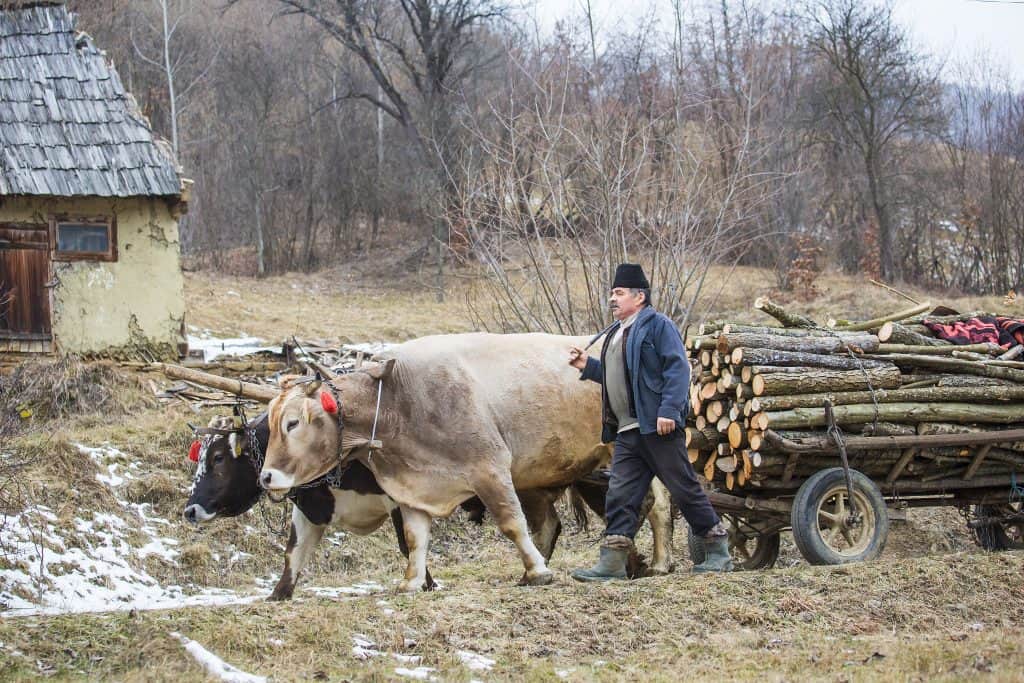They are our grandparents. They are our relatives “from the countryside,” from the isolated villages. They are the simple people who still follow the old traditions and pass on the science of woodworking from father to son. They are the forest-dependent communities.
They have always lived close to the forest. One can’t help loving their cottages. They picked mushrooms and raspberries and warmed themselves with the wood they brought from the forest. By horse or simply on their back. Over the centuries, they have learned to respect the forest and live in balance with it. The natural result was the creation of a biodiversity which we, the „civilized” society, try to protect.
Forced by communism to march towards industrial progress, their historical rights were wiped out overnight by forest nationalization. Then, forgotten by the democratic state during its endless transition to capitalism, the legitimate interests of these communities are ignored today. They are invisible to the law makers.
How can we do sustainable conservation or talk about responsible wood harvesting and use against the will of those who have lived in close contact with the forest for generations? Until recently, the concept of forest-dependent community did not exist in the Romanian legislation. When a law states that an area is strictly protected, entire villages, specialized in wood working one way or another, can find themselves deprived of access to the forest resources that are vital to them. When, according to the wood valorization regulation, these communities have to win an economic competition against large wood processors that often make use of non-competitive practices, we see the same result: local communities are deprived of access to forest wood. Access that they consider a fundamental right.
"We have to understand this is the only way in which we can achieve sustainable results, whether we are talking about nature conservation, responsible forest management, social protection or preserving the cultural identity of local communities."
Radu Vlad, manager of forestry programs at WWF Romania
WWF wants and fights for biodiversity conservation. But we want a conservation where men live in harmony with nature, where communities’ rights are taken into account. A conservation that takes into account the legitimate interests of local communities and involves them in decision-making processes that directly affect their daily lives.
We have already taken the first step in this direction at the end of last year, when we promoted the „forest-dependent community” concept in the National Forest Strategy 2030. However, it only sets the general strategic directions. That is why the concept must be included in the new Forestry Code, which is now drafted, to set clear criteria for designating and identifying these communities. Benefiting from over 20 years of experience in nature conservation and in direct collaboration with local communities, we sent our proposals to the authorities in this regard.
Once this concept is assumed through an organic law, its implementation must be done through the subsequent legislation, developed based on a participatory process, which specifies the designation indicators, as well as the roles and responsibilities of those involved in this procedure. So it is not an overnight process. It will take time and resources will have to be allocated.

